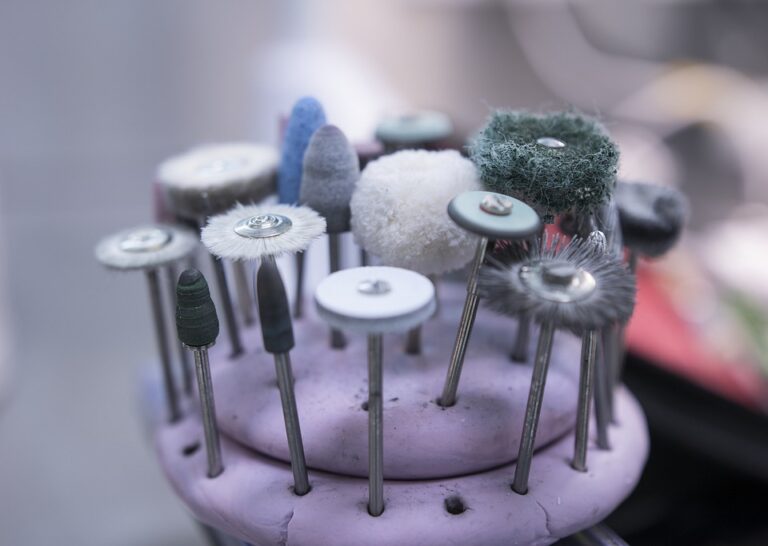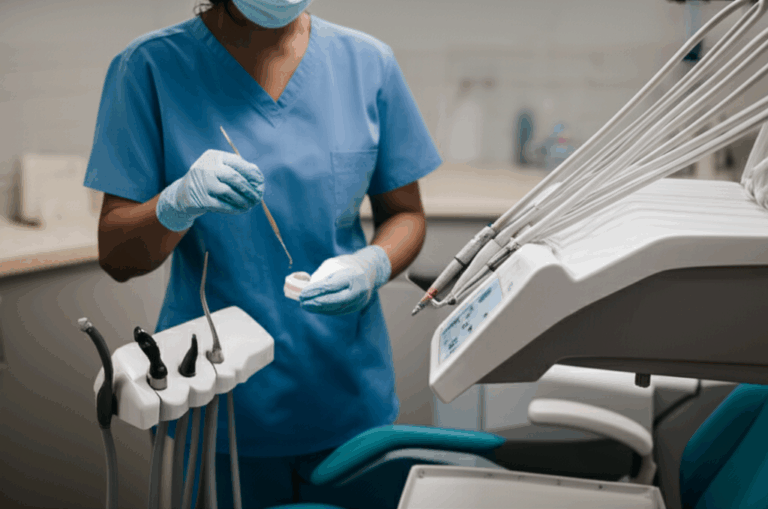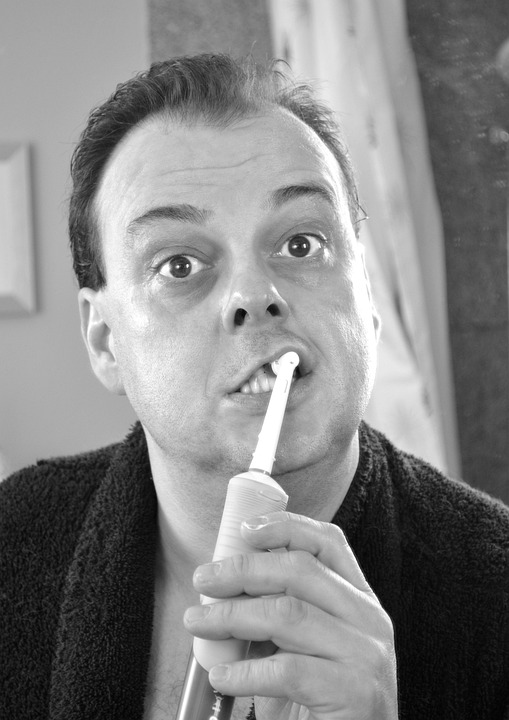
Can Dental Problems Cause Shortness Of Breath?
It is one of the most scariest feelings, not being able to get a good breath. For months, I had this shortness of breath that just wouldn’t go away. It made me so worried and tired. I done a bunch of tests for my heart and lungs, but everything was normal. The doctors, they had no idea what was wrong and I was starting to feel like I was going crazy. Then, a bad toothache gave me a surprise answer that put it all together. The reason for my breathing troubles, it wasn’t in my chest. It was in my mouth.
This article is my story. I’m going to tell you how a hidden tooth infection made a big mess in my body and gave me breathing problems. I’ll share what I learned about the big connection between your mouth health and your whole body’s health. If you have symptoms that nobody can explain, like me, I hope my story can help you get some answers you need.
Article Outline
- My Story: The Scary Signs I Couldn’t Ignore
- The “Aha!” Moment: Figuring Out the Link Between My Tooth and My Lungs
- How Can Tooth Problems Really Cause Shortness of Breath?
- The Kinds of Dental Problems That Cause the Most Trouble
- My Road to Getting Better: Treatment and What I Learned
- Steps to Stop This from Ever Happening Again
- Last Words: Your Mouth Is the Door to Your Body
My Story: The Scary Signs I Couldn’t Ignore
It all started slow. At first, I just felt more out of breath than normal after walking up some stairs. I just thought I was out of shape or maybe just tired. But then, the feeling started happening all the time. I’d be sitting at my desk, working on my computer, and all of a sudden my chest would feel tight. I had this big need to take a deep, good breath that just wouldn’t happen.
I would start to panic, which just made it worse. My heart would beat fast, and I’d feel dizzy. Was I having a heart attack? Was it just anxiety? I didn’t know.
I did what you’re supposed to do: I went to my main doctor. He was very good, he listened as I told him about this breathing problem that came from nowhere. We did all the tests. I had an EKG to check my heart, a chest X-ray to look at my lungs, and blood tests to check for other problems. Everything was perfect.
“Your lungs sound good, and your heart looks great,” he told me, “It might just be from stress.”
I was glad he was trying to make me feel better, but his answer didn’t feel like the whole story. I wasn’t really stressed out, and this feeling was so physical, so real. It was so frustrating. I felt like my body was turning on me with some sickness nobody could figure out. Being tired and out of breath all the time made it hard to work or have fun with my family.
Around then, a dull ache that didn’t stop started in one of my back teeth. I ignored it for a bit, like a lot of us do. I thought it was just sensitive. I’d chew on the other side of my mouth and tell myself I’d make a dentist appointment… later. The toothache didn’t seem as important as the scary fact that I couldnt breathe right. I had no idea the two things were so connected.
The “Aha!” Moment: Figuring Out the Link Between My Tooth and My Lungs
The dull ache in my tooth finally got real bad, a pounding pain that kept me awake. I couldn’t ignore it. I called my dentist right away in the morning and got an emergency visit.
When I was in the dental chair telling him what was wrong, my dentist looked worried. He took some X-rays and pointed to a dark spot at the bottom of my tooth’s root.
“Well, I found why you’re in pain,” he said, and he sounded serious. “You have a pretty bad infection called an abscess. It’s a pocket of infection that’s been growing deep in your jaw.”
He told me that the nerve in the tooth died, and germs had got in and made a bad infection. Then he asked me something that changed everything: “Have you been feeling sick lately? Tired, a fever, or any other weird things?”
My mouth just dropped open. I told him about being short of breath for months and how my other doctor couldn’t find anything wrong.
He got a look on his face like he understood. He leaned back and said, “I’m not surprised. Your mouth is a door to the rest of your body. An infection this bad doesn’t just stay in your jaw. The germs can get in your blood and make your whole body get swollen and angry to fight it. For some people, that swelling can for sure show up as breathing problems, like being short of breath.”
It was like, “aha!” All of a sudden, it all made sense. The infection in my tooth was like a poison, slowly getting into my body and starting all this swelling that was hurting my lungs. It wasn’t in my head. It wasn’t just stress. It was a real, body problem, and I finally knew what caused it.
How Can Tooth Problems Really Cause Shortness of Breath?
After my dentist told me about this, I started to read up on how this could happen. It’s interesting and also a little scary. It seems weird a mouth problem can make it hard to breathe, but when you see how the body works, it makes a lot of sense. Here’s what I learned.
Germs Getting in the Blood
This was the main cause for me. A tooth abscess, like mine, is a closed-off pocket of germs and pus. But the walls of this pocket, they have a lot of blood vessels all around them. When the infection gets bad, germs can break out and go into your blood.
This is called bacteremia. Just think of it like bad stuff slowly leaking into your body’s main road—your blood system. Once those germs are moving around, they can go anywhere, like your heart and your lungs. Your body right away finds these germs and starts a big fight. That fight is called inflammation, or swelling.
How Swelling Hurts Your Breathing
Swelling is how your body normally fights germs or heals a cut. It’s usually good. If you get a cut, it gets red and puffy because your body is sending help to fix it.
But when you have a secret infection for a long time, like a bad tooth, your body is always on alert. This all-over body swelling can cause problems everywhere. When it gets to your breathing system, it can make the inside of your air tubes and lungs get puffy and sore.
Think of your air tubes like straws. When they’re open, air moves easy. But when they get swollen, the hole gets smaller. This makes it a lot harder to get a full breath, which gives you that awful feeling of needing air or being short of breath. My lungs were working, it was just the swelling that was making their job much harder.
Gum Disease and Its Link to Breathing Problems
It’s not just abscesses. Bad gum disease, or periodontitis, is another big tooth problem that can mess with your breathing. With periodontitis, your gums pull away from your teeth. This makes deep pockets where bad germs love to grow.
This makes a non-stop infection and swelling right in your mouth. Just like with an abscess, these germs can get in your blood and cause swelling all over your body. But with gum disease, there’s another way for them to get to your lungs.
You can actually breathe in these germs from your mouth. The tiny drops in your spit can carry germs from your bad gums right into your air tubes and lungs. Studies show a strong link between the germs from periodontitis and a higher chance of getting lung infections like pneumonia, bronchitis, and making things like COPD worse.
Worrying About Your Teeth and Breathing Too Fast
There’s another connection that’s not as direct, but it’s still important. Living with a toothache all the time is super stressful. That pain that won’t go away can make you feel anxious. This anxiety can change how you breathe without you even knowing.
You might start taking small, fast breaths from your chest instead of deep belly breaths. This is called hyperventilation. It can make you feel like you’re not getting enough air, which starts a bad loop: not getting enough air makes you panic, and the panic makes you breathe even worse.
The Kinds of Dental Problems That Cause the Most Trouble
You should take any mouth problem seriously, but some problems are more likely to cause problems in the whole body, like shortness of breath. From what I went through and what I read, these are the main ones to look out for.
- Tooth Abscesses: This is what I had. It’s a bad infection at the root of a tooth or in the gums next to it. Because it’s a pocket full of germs, it’s a main way for germs to leak into your blood and cause swelling all over your body. The pain is usually really bad, but sometimes an abscess can be a smaller problem for a long time, causing body symptoms before the tooth even hurts a lot.
- Advanced Periodontitis (Bad Gum Disease): This is more than just gums that bleed some when you brush. Bad periodontitis is when a non-stop infection destroys your gums and the bone that holds your teeth. The amount of infected space in your mouth can be really big, which is a huge door for germs to get into your body.
- Impacted Wisdom Teeth: Wisdom teeth that don’t have space to come in right can be a problem just waiting to happen. A flap of gum can cover them, which traps food and germs. This leads to a painful infection called pericoronitis. This infection can cause a lot of swelling and, you know it, swelling all over your body.
- Problems After Surgery: Sometimes you can get an infection after a tooth is pulled or other mouth surgery if it doesn’t heal right. Something called a “dry socket” is not just very painful, but it’s also an open door for germs to get into the bone.
The one thing all of these have is an infection that isnt being treated. It’s the germs and the body’s swelling response to them that make the bad connection between your mouth and your lungs.
My Road to Getting Better: Treatment and What I Learned
Hearing what my dentist said was a shock but also a huge relief. I finally had an answer. The plan to fix it was simple: we had to get rid of the infection.
My dentist did a root canal to clean out the infected stuff from my tooth. It sounds scary, but it was nothing compared to the pain of the infection and the worry of not being able to breathe. He also gave me strong antibiotics to kill any germs that got into my blood.
The most important thing I learned was to take all the antibiotics, even when I started feeling better. It’s easy to want to stop when the pain is gone, but that lets the toughest germs live and maybe make you sick again.
The change didnt happen in one night, but it did happen. After a few days on the antibiotics and getting the root canal, the pounding in my tooth was gone. About a week later, I noticed something amazing: I was walking up the stairs to my place and I wasn’t out of breath at the top. I took a deep, full breath, and for the first time in months, it was easy. The tightness in my chest was gone.
After the infection was all gone, the next step was to close up and protect the tooth for good with a crown. My dentist told me how important this was so it wouldnt get infected again. He talked about how much better dentists’ tools are now, saying, “We work with a high-tech digital dental lab now. They use scanners to make a 3D copy of your tooth, so the crown fits with a perfect fit. This perfect seal is the most important thing to keep germs out for good.” It felt good to know the fix would be strong and fit perfect.
Steps to Stop This from Ever Happening Again
What happened to me was a big wake-up call. I realized I wasn’t taking care of my mouth health. Now, I pay attention and act fast. I never want to go through that bad time again, and you dont have to either. Here are the most important things I do now.
The Power of Going to the Dentist All the Time
This is the big one. I now see my dentist appointments as just as important as my yearly doctor check-up. Regular check-ups and cleanings are something I have to do. The hygienist can get rid of stuff my toothbrush cant, especially under my gums. My dentist can see problems like small cavities or early gum disease before they turn into a big scary problem like an abscess. It’s the best kind of dental care: stopping problems before they start.
Knowing the Early Warning Signs
I listen to my body and my mouth a lot more now. I dont ignore the small problems before they get big. You should pay attention to these early warning signs too:
- Gums that bleed when you brush or floss. This isn’t normal! It’s the first sign of gum swelling (gingivitis).
- Bad breath that won’t go away with brushing. This can be a sign of hidden germs.
- Teeth that hurt with hot, cold, or sweet things.
- Gums pulling back or teeth that look longer than they used to.
- Any pain or swelling in your mouth, face, or neck.
Don’t Ignore Tooth Pain
If there’s one thing I want you to learn from my story, it’s this: Tooth pain is your body’s warning sign. It’s not weak to get it checked out; it’s a smart thing to do. Don’t try to be tough or hope it goes away. An infection wont heal by itself. It will just get worse, and could cause body-wide problems like what I had. Sharing good teeth information like this with people I care about is something I do now.
Understanding Your Fix-it Options
Dentists today can do amazing things. I’ve learned not to be scared of it. When my dentist said I should replace an old metal filling, he showed me all the choices. He said that new materials from places like an emax dental lab can make fillings or crowns that are not only super strong but also look just like my real teeth. Knowing that fixes are better and look better than before makes it easier to fix problems right away.
Last Words: Your Mouth Is the Door to Your Body
Looking back, it’s crazy to think a small, infected tooth could have such a big effect on my life. My journey taught me a lesson I’ll never forget: your mouth health and your body health are the same thing. The mouth shows you what’s happening in the rest of your body, and it’s also a door that can let problems in.
If you are having a hard time with shortness of breath or any other symptom in your body that nobody can figure out, and your doctors don’t have answers, I would tell you to think about your mouth health. Make an appointment with your dentist for a good check-up. It might be the last piece of your health puzzle.
Taking care of my teeth gave me my breath back. It gave me my energy back. Most of all, it made me stop worrying. Don’t wait for a bad toothache or a scary body symptom to make you do something. Be on top of it. Your lungs—and your whole body—will be happy you did.








